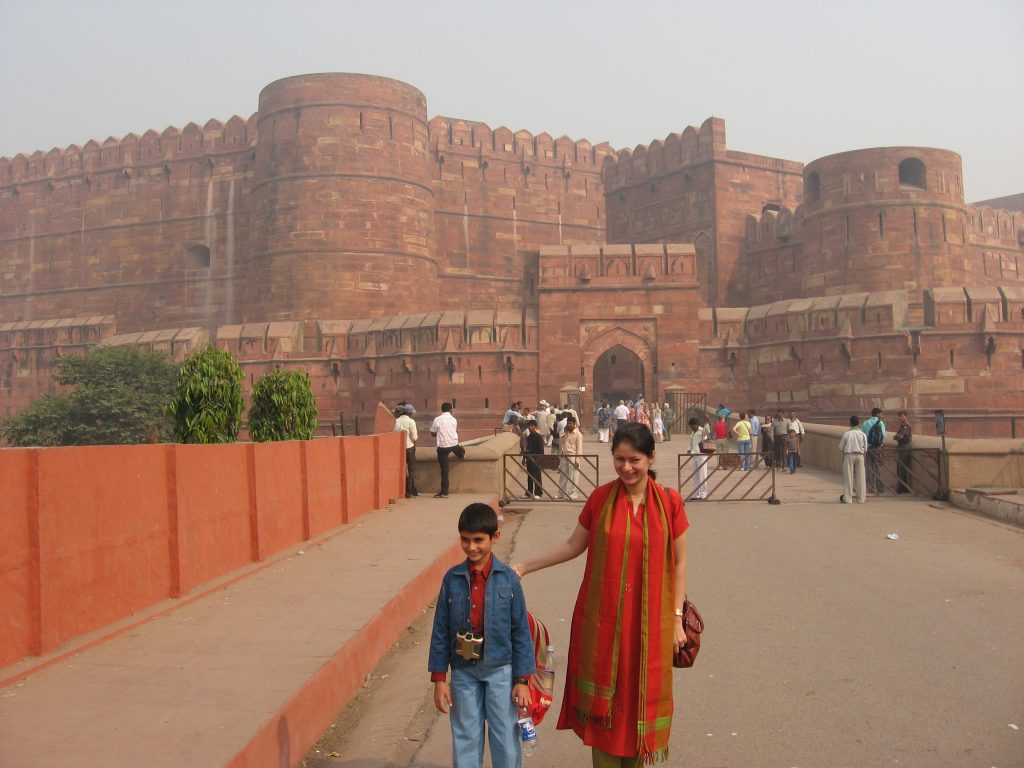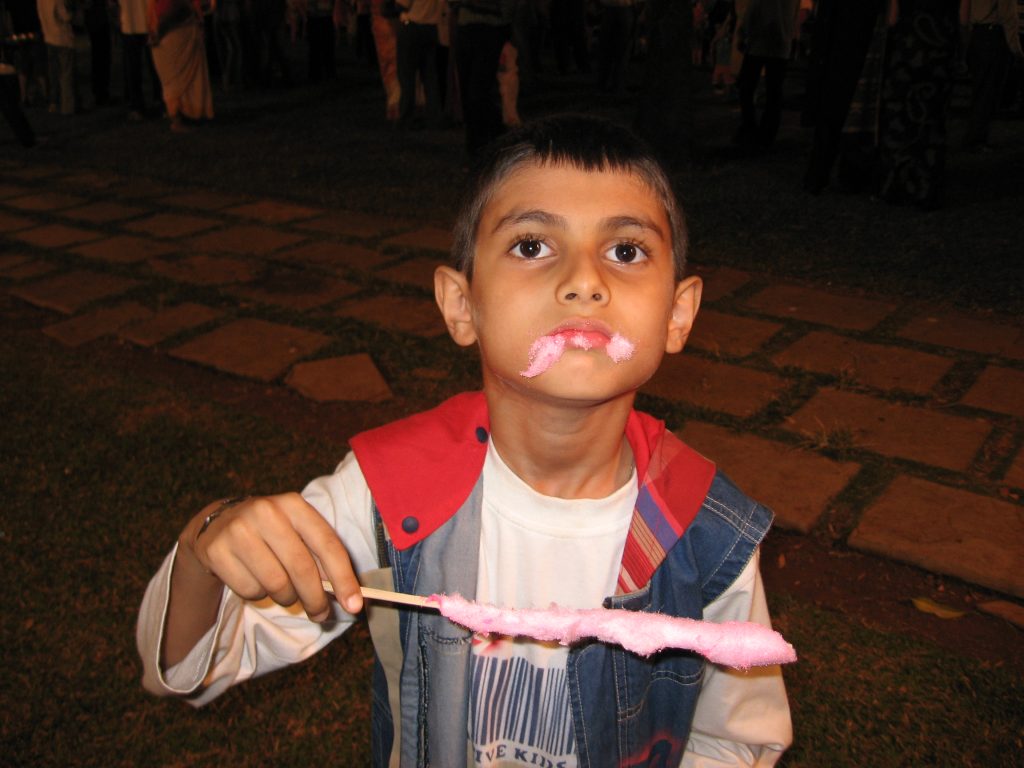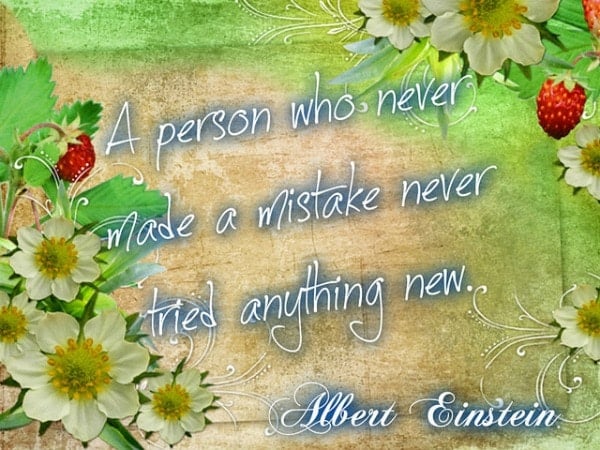
by Dee Harlow (Laos) | Apr 28, 2016 | 2016, Africa, Motherhood, South Africa, Twins, World Motherhood

I recently posted this photo of my twin children on my Facebook page with the caption “Where two oceans meet…” The double entendre was on purpose, albeit private since I only shared the fact that the location was Cape Point, South Africa, where the Atlantic and Indian Oceans meet – a turbulent mix of sea change and wind that nurtures one of the richest and most diverse floral kingdoms in the world. (United Nations Environment Program)
As I watch my children together against this backdrop, the second meaning hits me with a certain beauty and clarity.
How do I nurture the two vastly different oceans that are my children in a way that will allow them to thrive and flourish in their inseparable and sometimes turbulent emotional mix of differences and growth? How did Mother Nature do it in Cape Point?
As I reflect and take my cues from the natural environment around us, what I see is the ebb and flow of calm and storms, much like the children’s daily lives together. The strong winds that come can break each of my children where they cannot bend. On Cape Point where trees break from the wind only small shrubs grow, but those shrubs abound with nesting seabirds, small animals, and flowers that are hard as wood. Resilience blooms here.
Those same winds and storms carry foreign nutrients from far away that once calm, blanket the landscape with new and unexpected influences on the life that abounds there. Whether the impacts are negative or positive on the land, maelstroms don’t abide by what Cape inhabitants want or need. They either create rich and remarkable new species among those who adapt and embrace the new, or they can uncompromisingly destroy what tries to hide with futile resistance. Life always finds its own way.
The western seaboard of Cape Point is pummelled by Atlantic waves into jagged high cliffs that are hardened and worn and immovable. The eastern waves lap against a gentler bay that slope the yielding sandy beaches, although wayward and changing with each season. These two coasts are my children.
What Mother Nature is telling me is that life is not always safe and warm, that motherhood and nurturing for my children’s growth comes with uncontrollable forces that can either be seen as destructive or enriching. That while looking at this scene through either of these lenses and trying to focus on what will become of them is futile and indeterminate. I cannot see the future. I do not know how they will grow. All I know is that my love for each of them will always be as deep as their two oceans.
How do you approach raising two (or more!) different children?
This is an original post written for World Moms Blog by Dee Harlow, a mother of twins currently living in Lesotho. You can also find her on her blog Wanderlustress.
One of Dee’s earliest memories was flying on a trans-Pacific flight from her birthplace in Bangkok, Thailand, to the United States when she was six years old. Ever since then, it has always felt natural for her to criss-cross the globe. So after growing up in the northeast of the US, her life, her work and her curiosity have taken her to over 32 countries. And it was in the 30th country while serving in the Peace Corps in Uzbekistan that she met her husband. Together they embarked on a career in international humanitarian aid working in refugee camps in Darfur, Sudan, and the tsunami torn coast of Aceh, Indonesia.
Dee is now a full-time mother of three-year old twins and continues to criss-cross the globe every two years with her husband who is in the US Foreign Service. They currently live in Vientiane, Laos, and are loving it! You can read about their adventures at Wanderlustress.
More Posts

by Karyn Wills | Apr 27, 2016 | 2016, Motherhood, New Zealand, Oceania, World Motherhood

It’s one of those things I never saw coming before I was a mother: The value of adults behaving badly around my children.
In fairness, most of the adults my boys get to interact with are fine people, who behave with maturity, have decent principles and who take responsibility for their actions. And I’m not talking about those who swear, or drink alcohol or smoke, or who have different beliefs or ways of raising their own children. Accepting that others are different in many ways is something the boys are well on the way to understanding, and these things are superficial when all said and done.
I’m talking about: the value of experiencing adults letting them down; the importance of hearing adults blame others for their own inaction or mistakes; the usefulness of having an adult’s words and actions not line up with one another; and the great learning involved when they are around adults who are manipulative, bratty, unreasonable, show blatant racism or sexism, or who are down right mean and nasty.
With these, the boys all go through the stages of mourning. Sometimes the mourning process is longer than others, depending on the closeness of the relationship they have with the adult in question. When it’s a distant relationship, it might be a casual comment or discussion in passing – the emotional impact is minor and the processing, swift. With a closer relationship, they are usually are angry or sad enough to tell me what has happened, although I have also occasionally had to remind them not to simply tell me what they think I want to hear. There seems little value in processing half-truths, and there is no value at all in having me take on a rescuer role merely because that’s what they imagine I want to happen.
There is immeasurable value, however, in discussing unhealthy drama triangles where those roles of rescuer, victim and persecutor play out, in order for the boys to recognise them and avoid them, or at least extricate themselves from in the early stages. It is useful to recognise narcissistic tendencies, adult bullies, and the difference between genuine remorse and manipulation. It is good for them to know that there is a big difference between passive-aggressively saying yes, while meaning, no, and politely but honestly declining. (That doesn’t work for me, is often enough.) They have learned who can be relied upon to keep their word or who is worthy of respect. It is to those adults whom they turn for protection and advice. Equally, they are learning which people are not principled or who consistently cannot be relied upon.
As a solo Mum, I often have times when others are caring for my children. It seems vital that they know which adults are safe and which are unsafe, not just physically but emotionally, too.
Sadly, the have had experiences where they needed to know those differences. I don’t belabour the points, but we have been through it all more than once. The 14 and 11 year-olds get the full works, the six year-old gets a very watered down version. We always discuss any positive aspects they think the person has and we then go on to list the many adults they know who don’t behave in these ways. The experience always comes before the lesson.
I finish these discussions by pointing out they can choose the behaviours they wish to embrace and those they wish to reject.
I’m all for a magical early childhood where all adults are heroes and heroines and imaginary beings are real things, but from around the age of nine this magic seems to naturally begin to subside. Rudolf Steiner called this the Nine Year Change and I have found that to be a useful label. From around then, my older boys have come out of their dream-world and into a world that is quite scary and overwhelming at times; a world in which they realise I cannot always protect them; a world in which they realise they must learn to look out for themselves. Like other life skills, I am a firm believer in helping them to recognise healthy and unhealthy people of all sizes and those adults behaving badly are a wonderful learning tool. A tool I never expected, but one I value all the same.
Have you had to help your children reach an understanding around an adult’s bad behaviour?
This is an original post to World Moms Blog by Karyn Wills of New Zealand. Photo courtesy of idreamlikecrazy / Flickr.
Karyn is a teacher, writer and solo mother to three sons. She lives in the sunny wine region of Hawke’s Bay, New Zealand in the city of Napier.
More Posts

by Loren Braunohler | Apr 11, 2016 | 2016, Europe, Expat Life, Life Balance, Parenting, Poland, SAHM, School, Stay-At-Home Parent, World Motherhood, Younger Children

Indulging in ice cream on a hot day in Krakow’s main market square
Free time. Sometimes I feel like I would give an arm and a leg for a little bit of free time. To have lunch with friends. To go to the gym. To take a nap. To read. To go to the grocery store all by myself. To do nothing.at.all. I knew when I signed up to be a stay-at-home parent that I would have little time to myself. I also knew that with my husband’s job, which has us moving to a different country every two or three years, that having a set of grandparents (or two) close by to provide some regular child-free relief was not going to happen. In our journey across the globe, we’ve been fortunate enough to find our place and develop our circles of friends. The expat communities in Thailand and Poland have been good to us, and we know that if we have an emergency, we can call on the support of our friends to help us out with the kids if need be. That is the way it works when you are abroad. You help each other out. And I am so grateful for these friends and their support.
But, still, when you are a stay-at-home parent, particularly not near close friends and family, you spend an extraordinary amount of time with your kids. This is of course exhausting, but also wonderful. You get to witness every little new thing they discover, the days their mood begins to change and they develop new facets of their personality, and watch the bond between siblings grow (yes, a time does come when they stop fighting constantly). Your life is so wrapped up in theirs that it is hard to imagine a time when it will no longer be that way. Their every little move is known to you, and yours to them.

Enjoying waffles while visiting the Easter markets in Krakow
But, one day they will go off to school – all of them (in my case, three) – and then, you will actually have free time. Think about that for a minute. You, without needing to feel guilty, will be able to do what you want to do – whether that is going back to work part-time or full-time, or taking on a new hobby or two, or just enjoying the peace and quiet for awhile. This is your time. So what will you do?
I am not going to lie. I have about 18 things on my plate that I would like to do when the kids start school. I’d like to start writing more often and for more publications, I would like to write another children’s book (and hope that it will be successfully published this time). I would like to train for and run a marathon. I would like to learn to swim and bike correctly and try my hand at a triathlon. I would like to become a good photographer. I would like to get back to writing thank you notes, planning ahead of time, and reading. I would like to cook and not be rushed. I would like to explore the city – take tours, visit the non-kid friendly museums, mosey about Krakow’s beautiful old market square.
So yea, it’s safe to say I’ve thought about what I will do when the kids go to school. But sometimes I wonder if the thrill of free time will peter out quickly. The reason I stopped working five years ago was to stay at home with the kids.
Will I be able to feel that my life is fulfilling when they are no longer at home, nor fully dependent on me? Will what I plan to do with my time be “enough?” Will it fill the void of not having them around? Will my time be useful? And if so, to whom will it be useful?

Enjoying a morning of fun at the Engineering Museum in Krakow
I have talked to other mothers who have the same concern. One friend in particular who just went through the process of sending her boys off to school for the first time (she home-schooled them previously) has struggled with feeling whether what she is doing in her free time “enough?” When your role – for years – is to raise sweet little beings into strong, confident, and loving children, and then one day the time you have to do that is cut back significantly – what will that feel like? Will it be a blow? Will it be a relief? Will it be bittersweet?
At a minimum, it will be an adjustment. And while I don’t have any answers, yet, it is just one more milestone on this path of parenthood.
Are you a stay-at-home parent? How have you adjusted, or how will you adjust, to your kids going to school?
p>This is an original post to World Moms Blog by Loren Braunohler of Poland.

by Tara Bergman (USA) | Apr 1, 2016 | 2016, Being Considerate, Boys, Communication, Discipline, Kids, Life Lesson, Motherhood, North America, Parenting, Tara B., USA, World Motherhood, Younger Children

Recently, my 9-year-old hit a snag in his martial arts class. He practices Shotokan, a style of karate that focuses on mastering technique through continual refinement. His sensei sums it up by saying, “Practice doesn’t make perfect. Perfect practice makes perfect.” (more…)
Tara is a native Pennsylvanian who moved to the Seattle area in 1998 (sight unseen) with her husband to start their grand life adventure together. Despite the difficult fact that their family is a plane ride away, the couple fell in love with the Pacific Northwest and have put down roots. They have 2 super charged little boys and recently moved out of the Seattle suburbs further east into the country, trading in a Starbucks on every corner for coyotes in the backyard. Tara loves the outdoors (hiking, biking, camping). And, when her family isn't out in nature, they are hunkered down at home with friends, sharing a meal, playing games, and generally having fun. She loves being a stay-at-home mom and sharing her experiences on World Moms Network!
More Posts

by Piya Mukherjee | Mar 31, 2016 | 2016, Asia, Identity, Motherhood, SAHM, Work

The Author with her son.
It’s seldom admitted but true. Lots of working, married urban women fear the effect that a new child will have on their ability for juggling spreadsheets and power point presentations at the office. Or, look upon the baby as a desirable added dimension to their lives but want to keep other areas at status quo. Depending upon the duration of maternity leave, available support systems and the new mother’s ability to cope with sleepless nights, the infant is soon handed over to the care of the grandmother, resident care-giver or the friendly neighbourhood crèche.
Hence when I announced to the world at large my plans for quitting my job for Full Time Parenting (FTP), I was prepared for goggle-eyed reactions. What I didn’t expect was the constant need to justify this decision to friends, relatives and the third cousin of the neighbour’s aunt-in-law! Objections ranged from the mundane (“You will be thoroughly bored after a while) to doom’s-day prophecies (“This will be a professional suicide.). Interspersed were a few whacko ones (“It’s irresponsible to waste yourself”) and a few, exasperated, “let’s put some sense into her head” type of reactions.
The reactions:
What was everybody dreading on my behalf? The loss of the status of a “working woman”? The giving up of that tiny perch on the huge mountain of the corporate world, that announced to the world “This is who I am”?
No, it was about “liberation”, the kind that is often equated with a job, any job, at long as it pays. To female friends and colleagues, I was suddenly the betrayer of a system, a traitor to the cause of emancipation. Instead of becoming a new member in the circle of working moms, alternating between the adrenaline of economic independence and the niggling anxieties of part-time parenting, here I was, stubbornly choosing to go the whole hog with parenting.
Sour grapes? Nein…
Was the job no good? Au contraire, it was a dream job, won by sheer dint of hard work after a gruelling two-year MBA. Then why did I quit? Because, once having decided to bring in a little soul into the world, I wanted to be a 24/7 mother for a good, long while, living the roller-coaster ride of joys, hopes, worries and triumphs. Because for me, “a meaningful life” had always meant a basket of activities, pursuits and callings. Because what works for another may not suit me at all.
Because true liberation is about making those choices that bring happiness. Not about living up to other’s expectations of what a female, well-educated, working mother ought to be. And about respecting that inner voice that refuses to be shushed and is not afraid to walk off the beaten track.
Idealism can be practical too:
Because, like a child in a candy store, my wants know no limits – I want to be a woman, wife, mother, writer and professor, all at the same time. Because I want to shape my life exactly the way I like not in a de facto, “patchwork quilt” manner dictated by an increasingly demanding corporate world. Because my curiosity and naïve optimism make me plunge thoroughly and completely into whatever I decide to do; there’s no holding back, no half-hearted measures. Because I am a foolish, idealistic woman in the era of plastic, recyclable ‘values’. Because I like to live out that hoary old adage: ”If anything is worth doing at all, it is worth doing well”
Office versus home:
At work, I revelled in the thrill of new challenges and the fancy designation. But this certainly wasn’t what I wanted to continue doing for the rest of my life. Then why use it as the ostensible reason for not changing priorities? I’d rather use my training of my corporate stint to reach and influence people differently, as I do now. The idea of doling out measured minutes of “quality time” to my child, after I reached home bone-tired from work every evening, never fully satisfied me. To my mind, quantity is also important. And I prefer family values to those of the paid-by-the-hour surrogates.
Yes, the pay cheques were initially slimme. But the grey cells are ticking, the mind and heart are raring to go, and it’s delightful being one’s own boss. On a particularly bad day, when my toddler drives me up the wall, I do get nostalgic about the super-charged office that I once inhabited. But then, it’s exhilarating to do one’s own thing. And the balance between work, creativity and family is oh so delightful! All things considered, I should probably thank the little tyke – he was the right reason at the right time.

“Ma, the candy floss got over too quickly!”
All about priorities:
Each mother has her own world view, her own list of priorities. And while every mother loves her child with all her heart, the manifestation of that love would be unique for each woman. Hence there can be no “one size fits all” kind of rule. What works for one might not do, for another. As long as we can remember to say, “To each, her own”, the world will be a teensier bit better!
What worked best for you as a mother?
This is an original post written by Piya Mukherjee for World Moms Blog.

by Meredith (USA) | Feb 19, 2016 | 2016, Advice, Communication, Kids, Life Lesson, Motherhood, North America, Parenting, Responsibility, USA, World Motherhood, Younger Children

When we bring our babies home with us, it is our instinct to protect them and make sure they do not go without anything they need. Their cries hurt our hearts to hear them in distress. It is hard to believe that something so small can be so demanding. Their demands are simple: eat, sleep, diaper changing , repeat. As they grow, their needs are still there but in their own world discovery, the idea of what they need and what they want starts to blur. As parents, we want what we think is best for our children. We try to shelter them from hurt and failure. And, whether we admit it or not, we somehow project our own feelings of hurt, success,and failure on them in some ways. (more…)
Meredith finds it difficult to tell anyone where she is from exactly! She grew up in several states, but mainly Illinois. She has a Bachelor of Science degree in Elementary Education from the University of Illinois at Champaign/Urbana which is also where she met her husband. She taught kindergarten for seven years before she adopted her son from Guatemala and then gave birth to her daughter two years leter. She moved to Lagos, Nigeria with her husband and two children in July 2009 for her husband's work. She and her family moved back to the U.S.this summer(August 2012) and are adjusting to life back in the U.S. You can read more about her life in Lagos and her adjustment to being back on her blog: We Found Happiness.
More Posts
























